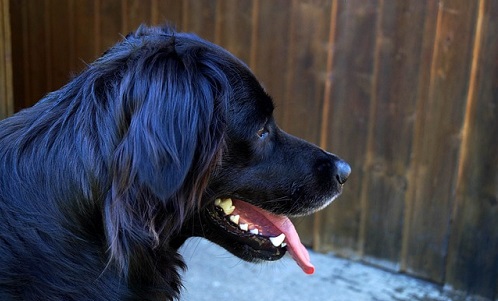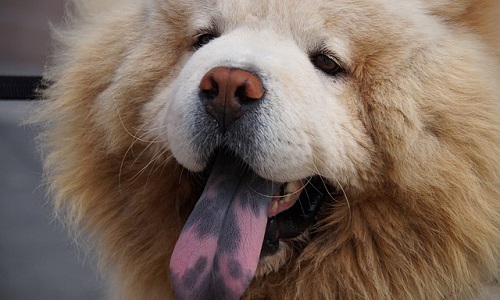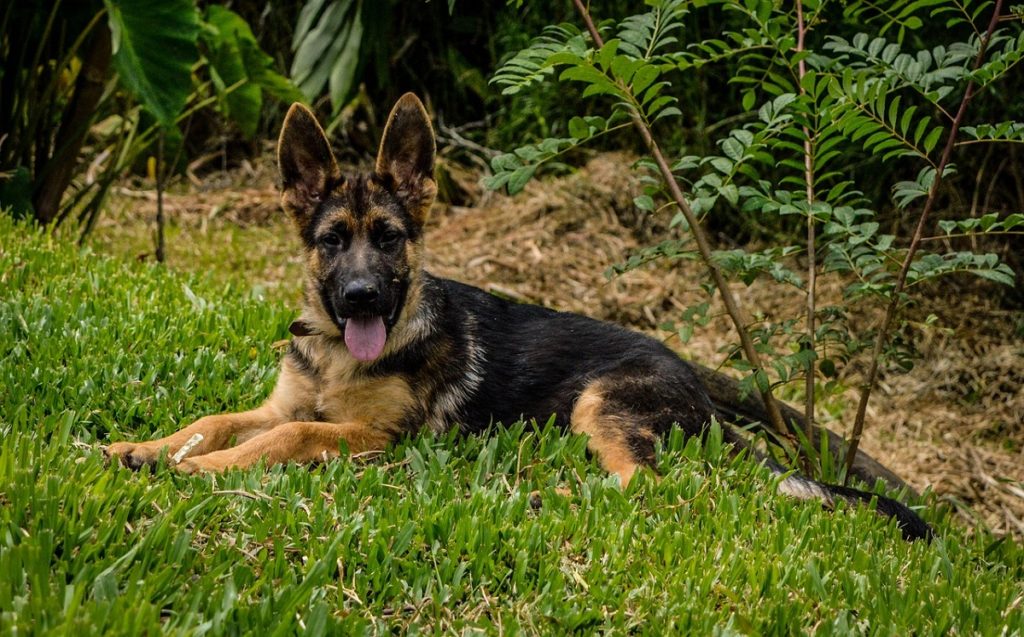It’s normal for dogs to pant, all owners know this. They may pant when they’re super energetic or really hot after exercise – it’s natural. Heavy panting, on the other hand, is different. This may be a sign your dog has experienced a trauma, is dealing with a threatening health issue or is dangerously overheating and experiencing a canine heat stroke. As a dog owner, it’s important for you to be aware of the common causes of excessive panting in dogs and can decipher regular panting from heavy panting. After reading this, you’ll recognize the key factors separating the two and understand how to react.
Regular Panting vs. Excessive Panting
Whether panting to cool down or after exercising, if your dog keeps panting, don’t worry. This is a normal body response in canines. Typically anywhere from 10 – 30 breaths a minute is normal. This of course depends on breed and size. Some breeds, such as Boston Terriers, Bulldogs and Pugs are prone to heavier breathing due to shorter snouts. Research your breed to know what’s considered normal.
 Excessive panting or shaking in dogs, on the other hand, is quite different. You may not think about it, but you’re around your dog a lot and have grown accustomed to their regular panting. Therefore, any panting outside the norm or if the sound triggers your attention it may be cause for concern. Excessive panting could mean:
Excessive panting or shaking in dogs, on the other hand, is quite different. You may not think about it, but you’re around your dog a lot and have grown accustomed to their regular panting. Therefore, any panting outside the norm or if the sound triggers your attention it may be cause for concern. Excessive panting could mean:
Heat Stroke
Heat stroke may be one of the most serious causes of excessive panting and can even be fatal. Overheating is serious and should be treated as a medical emergency. If you suspect your dog has heat stroke, heavy panting is a very common sign. You may also notice drooling, glassy eyes, overall canine lethargy, and an increased heart rate in dogs who are overheating.
Heart & Respiratory Issues
Like humans, dog’s can experience heart issues like canine heart disease and show many of the same symptoms. A diseased heart is unable to efficiently pump blood throughout the body, therefore limiting the amount of oxygen available. As the heart’s ability to pump declines, respiratory issues can ensue and the lungs may fill up with fluid. This causes your dog to breathe more rapidly and with greater force. Heart conditions commonly result in heavy panting. Other signs of heart and respiratory issues are a reluctance or decreased ability to exercise, rapid breathing, canine coughing, and tiring quickly. If you play with your dog a lot, these are symptoms you’ll likely notice quickly and deserve your attention.
Cushing’s Syndrome
This occurs when a dog’s adrenal glands produce too much cortisol. Excessive panting is a common symptom of canine Cushing’s Syndrome while other symptoms may include increased canine hunger and thirst as well as hair loss in dogs.
Injury
Excessive panting can also be a dog’s way of expressing pain and may be one of the first signs that catches your attention that something is wrong. If you notice panting occurring at odd times, such as during rest periods, this could be a sign of injury. Remember, as much as we all may wish for this, your four-legged friend can’t talk, so it’s up to you to notice these signs and react quickly.
What You Can Do
 As is the case with any medical issue, if you notice excessive panting or you’re concerned that something is wrong with your pup – it’s important to make an appointment with your vet. With that being said, depending on the cause of the painting, there are a few things you can do right away to help temporarily improve your dog’s condition before you make the trip. If you notice excessive panting, look for some additional signs and symptoms of distress such as those noted above. This may help you determine a cause and the best course of action. If it’s a heart or respiratory issue, Cushing’s Syndrome, or an injury you should perform general comfort measures for your pup and get him to the vet as soon as you can.
As is the case with any medical issue, if you notice excessive panting or you’re concerned that something is wrong with your pup – it’s important to make an appointment with your vet. With that being said, depending on the cause of the painting, there are a few things you can do right away to help temporarily improve your dog’s condition before you make the trip. If you notice excessive panting, look for some additional signs and symptoms of distress such as those noted above. This may help you determine a cause and the best course of action. If it’s a heart or respiratory issue, Cushing’s Syndrome, or an injury you should perform general comfort measures for your pup and get him to the vet as soon as you can.
Overheating is generally the most common cause of excessive panting. If your dog has a fever and his temperature is abnormally high, it’s important you react swiftly by moving your pup to a shady spot and submerging him in cool water. The word cool is key, as it’s important to avoid cold water, which could actually constrict blood vessels and make matters worse. Additionally, you should provide your dog cool water to drink or even an ice cube to lick. Once your furry friend’s body temp starts to come down, bring him to the vet immediately. To avoid putting your dog at risk of heat stroke, never leave him in a parked car, always bring him inside during the hottest parts of the day, and ensure he has plenty of water and shade.
At the end of the day, no one knows your four-legged companion better than you. If you notice abnormal panting, call your vet immediately.
Sources:
- “Heavy Panting in Dogs.” WebMD, Accessed 4 Jan 2019. www.pets.webmd.com/dogs/dog-panting-heavily#1.
- “8 Causes of Excessive Dog Panting That Deserve Your Concern.” Healthy Pets, Accessed 4 Jan 2019. www.healthypets.mercola.com/sites/healthypets/archive/2015/11/25/dog-panting.aspx.
- “When Is Dog Panting Abnormal?” Pet Health Network, Accessed 4 Jan 2019. www.pethealthnetwork.com/dog-health/dog-diseases-conditions-a-z/when-dog-panting-abnormal.




